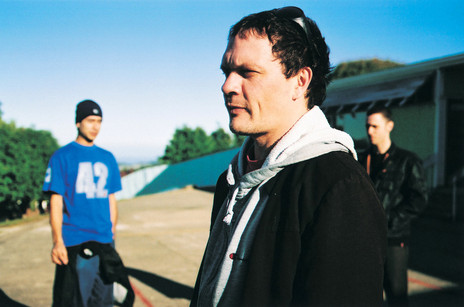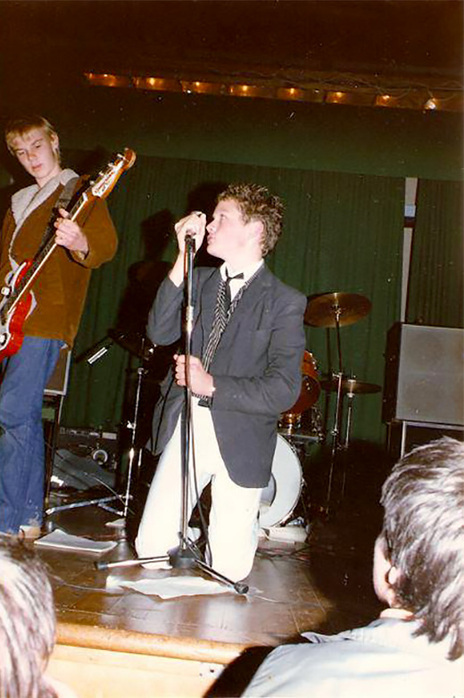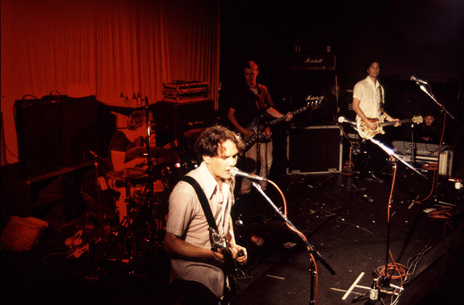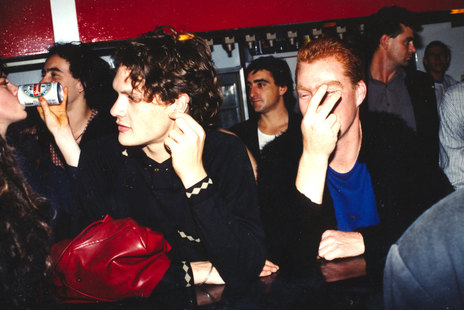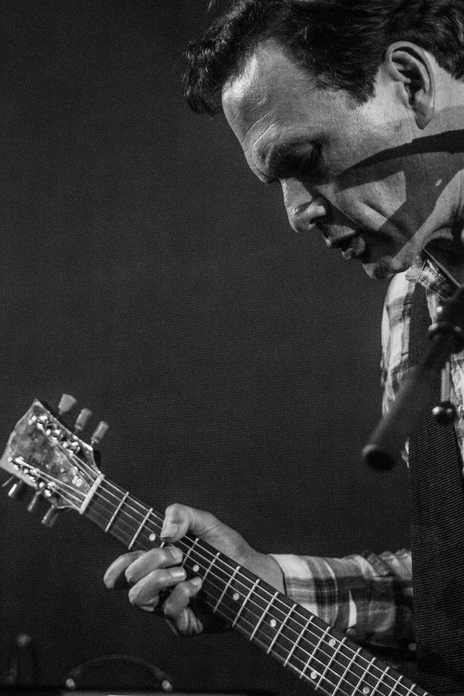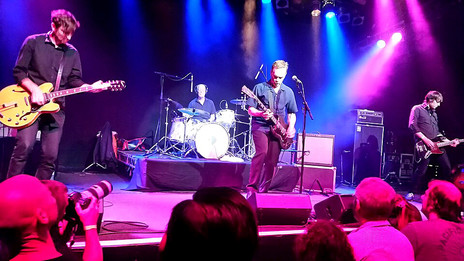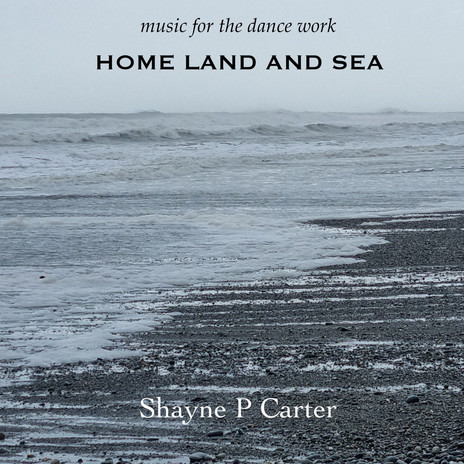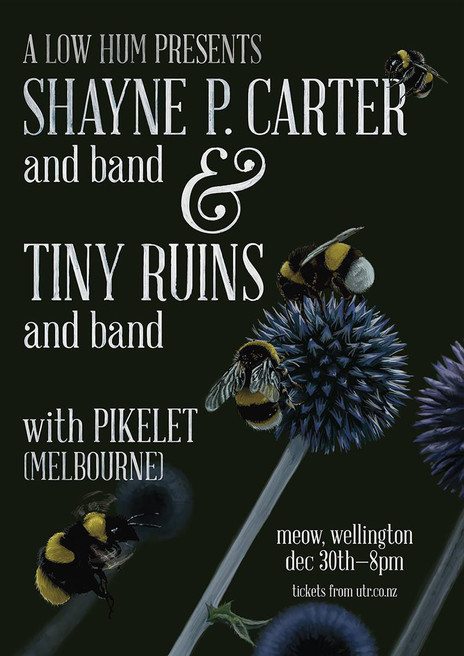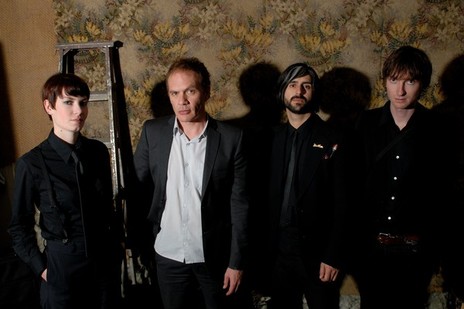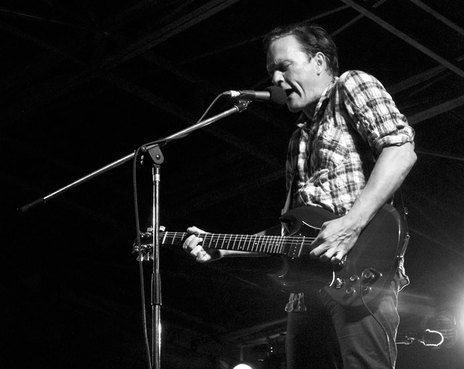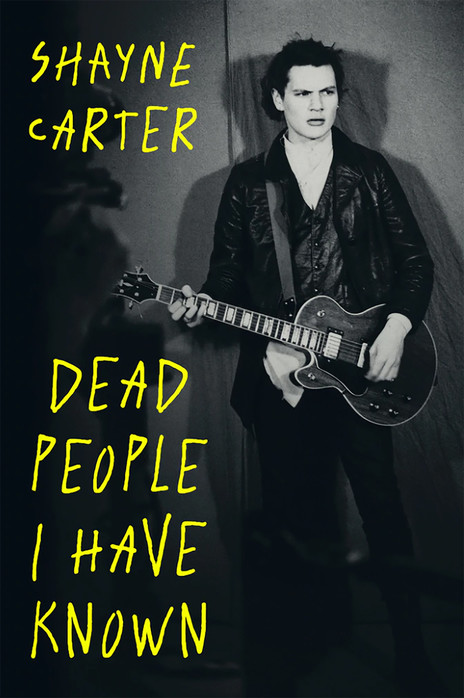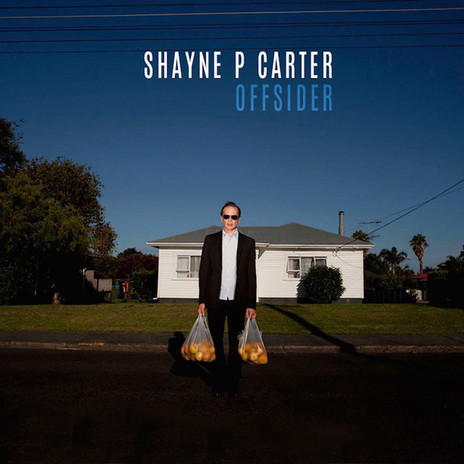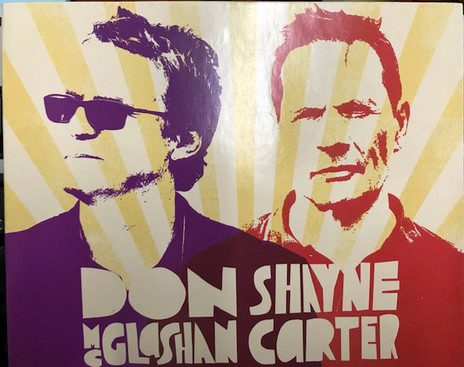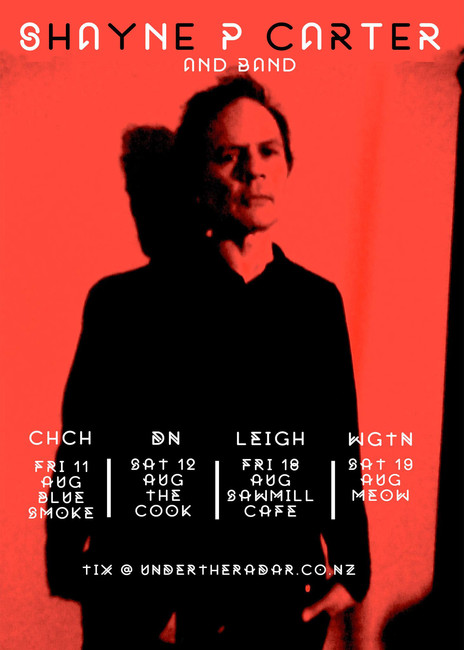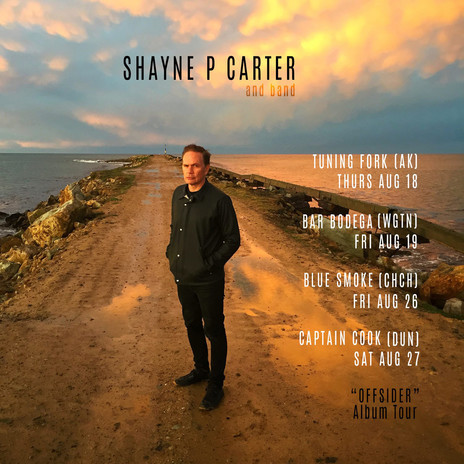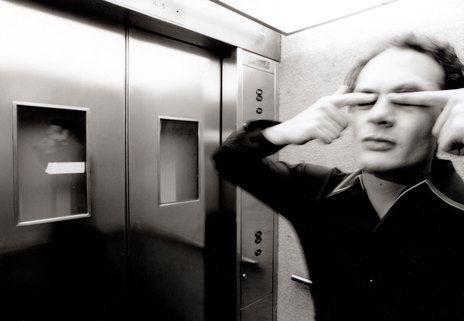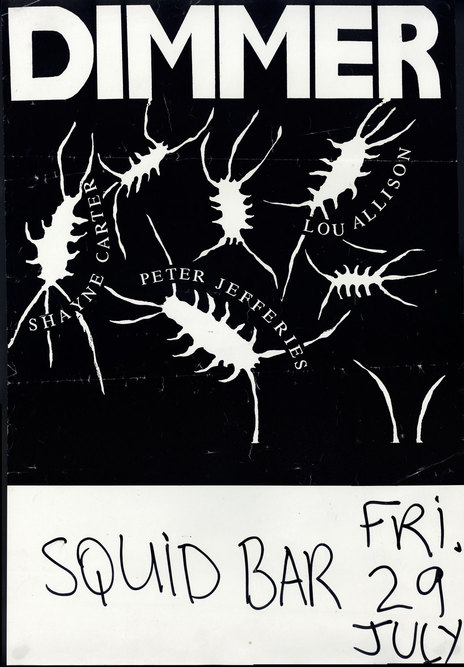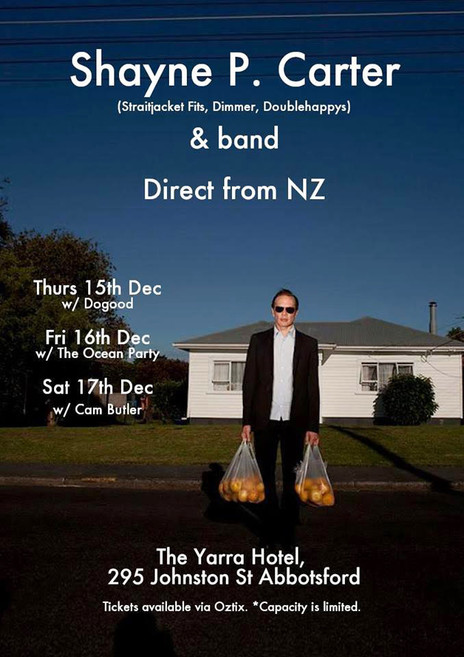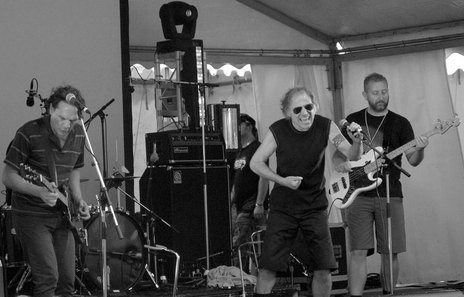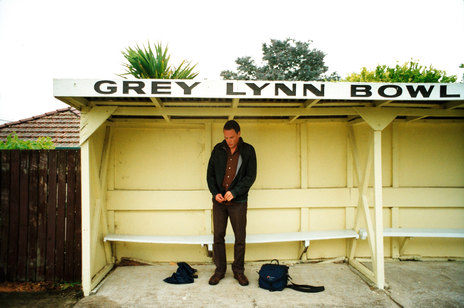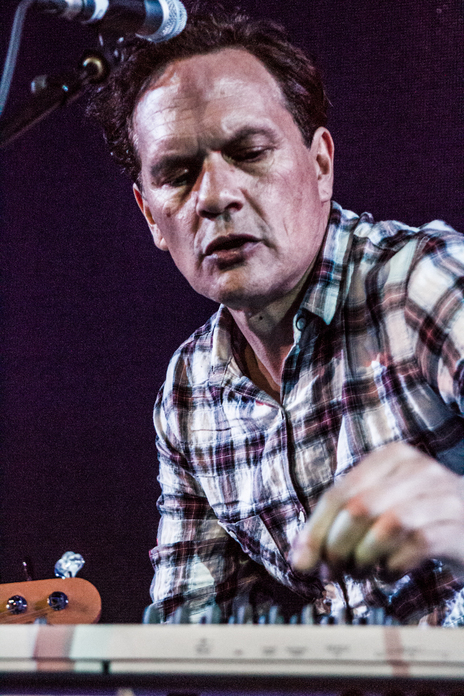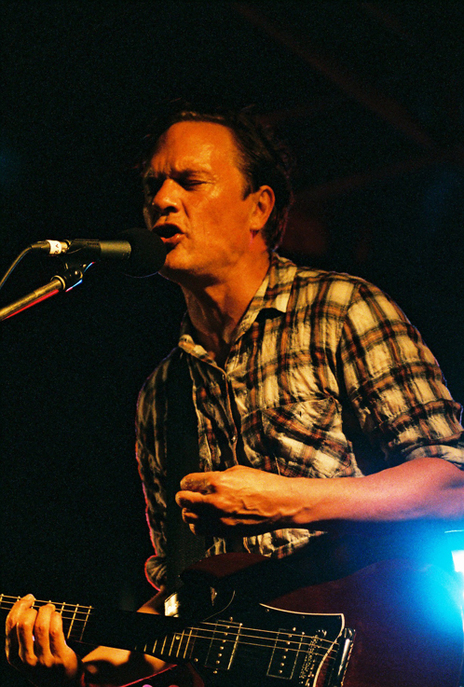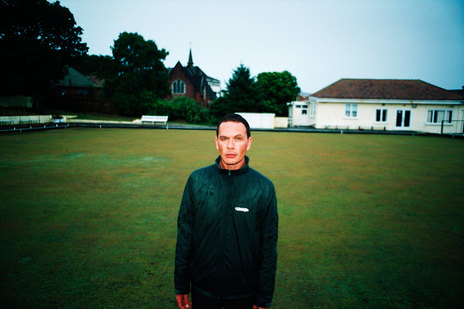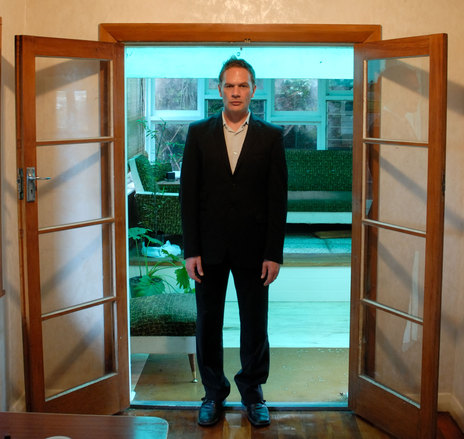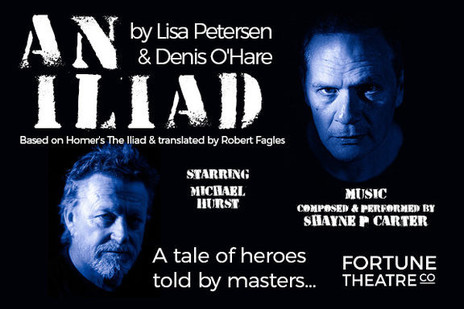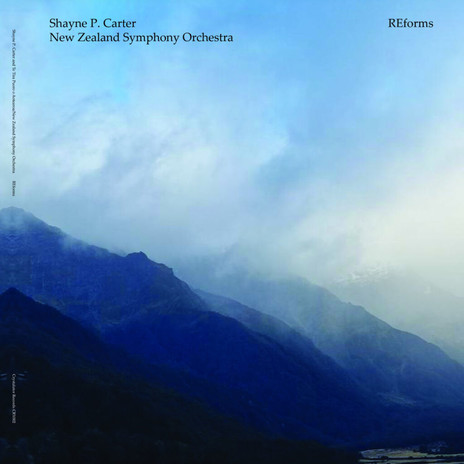When Elsey left to form The Stones, Terry Moore (later of The Chills) was drafted in, but the group’s naïve punk – check out ‘Joe 90’ – was already verging on passé. Time for a change: His next band, The Double Happys, revealed dramatic improvements. Reuniting with the charismatic Elsey and employing the services of a drum machine tagged "Herbie Fuckface", the group got really good when Herbie was dumped in favour of a real drummer, John Collie.
Then, tragedy struck. In 1985, having put the finishing touches to their EP in Auckland, and on their way to perform in Christchurch, Elsey was killed while skylarking in a train. Apparently he leaned out the carriage doorway at just the wrong time. It’s glib to claim that out of adversity good things come, but after the premature demise of The Double Happys, Carter recorded his haunting tribute to Elsey, ‘Randolph’s Going Home’, a classic one-off with Peter Jefferies, and then formed a new band from the core of his old band: Straitjacket Fits.
Carter and Collie recruited bassist David Wood from Working With Walt, and singer/songwriter Andrew Brough from The Orange, and “the Fits” was born. No one could have predicted the success and acclaim and sheer excitement that followed the release of the group’s Life In One Chord EP in 1987, with the unforgettable rush of ‘She Speeds’. Suddenly, Flying Nun had a power pop hit on its hands, and a band with genuine sex appeal.
Having dragged himself back to Dunedin after the unceremonious breakdown of Straitjacket Fits in America, and spending a few years willing his next project, Dimmer, into existence, Shayne Carter was back in Auckland. He’d upped roots from his birthplace to search out a record company for the new project.
It was 1997, and this prickly but inquisitive customer with An attitude as big as Texas turned up.
It was 1997, and this prickly but inquisitive customer with rugged good looks, Elvis-style curled lip and an attitude as big as Texas turned up at my tiny, experimental Ponsonby Rd record shop, Beautiful Music, to check out some “tunes”.
I had made it my life’s work to avoid friendships with musicians, with the rather curious idea that I could maintain a critical distance from which to observe their art, but Carter was impossible not to like. Great musicians commonly articulate well on their chosen instruments, less so verbally. Shayne, despite a punkish tendency to pinprick perceived pretensions, could wax eloquently about the far corners and deep crevices of popular music history, and it turned out he was a voracious reader of histories and biographies, and wasn’t short of an opinion on any subject he was acquainted with. He was a scholar of pop mythology, which is incredibly rare for someone who is indisputably woven into the very fabric of that mythology. We became buddies.
For the next few years, Shayne Carter would regularly seek the sanctity of my venue for late-night listening sessions of new music. I would set him up with piles of avant-electronica and whatever else was fresh and non-mainstream, and he would invariably go nuts over the most extreme choices: The fidgety hi-res experimental techno of Monolake, the distorted power electronics of Pan Sonic. Shayne particularly loved the bizarre four-CD set of shortwave “numbers stations” broadcasting coded messages, The Conet Project. In short, he was up for almost anything, clearly looking for an escape from the expectations of the fans of the incredible alt-rock he made with Straitjacket Fits.
This was the last phase of the necessary rewiring of Shayne Carter after the unexpected failure of a group that everybody expected to conquer the world. From the moment ‘She Speeds’ burst onto the scene in 1987 – just one of four great songs on Straitjacket Fits’ debut EP, Life In One Chord – there was an unstated belief that this band really could go far, and that unlike other bands on their label, Flying Nun, here was a raging rock group with real tunes that had the potential to, as they say in the biz, cross over.
In reality, it’s just a lottery, and just like Hello Sailor and Split Enz and The Chills, Straitjacket Fits found that despite all the promise of a glittering career, America could be a harsh mistress, and that she would not countenance a second go at the top.
By 1990, Straitjacket Fits was touring the world, and getting incredible press coverage in England and throughout Europe. When they scored what looked like a fabulous record deal with Arista, the world seemed like their oyster. What could go wrong?
Well, all it takes is for the guy that signed you to leave the company, the melodic counterpoint to your hard-edge in the band to leave (Andrew Brough) and a new music genre (grunge) rising up overnight to make your thing seem old-hat, and it’s over, you’re back in Dunedin, on the dole. It’s hard. Ask Martin Phillipps. It can’t have been easy for Shayne, who knew he had everything it took, but had it whisked away almost overnight, in 1993.
Eight years, one thrilling EP, and three albums of quality and distinction – Hail (1988), Melt (1990) and Blow (1993) – and the dream was over.
When I met Shayne Carter, I could still occasionally feel the pain of that rejection. The male ego is a fragile thing, and unlike so many wannabe stars, Carter really believed in this rock and roll life: Not the star-making machinations or the superficial bull, but some kind of staunch inner validity, integrity. You can see it in the singers Carter loves: Elvis, Marvin Gaye. It’s more than just X-Factor.
he got a crane to install a container in his backyard, to record ‘I Believe You Are A Star’ (2001).
So it was important for Shayne to remap, rewire, and find a new way to work, and when he scored his deal with Sony, that’s what he set about doing. When I moved my shop to bigger premises, Shayne moved into the old Ponsonby Rd shop, where he rehearsed and recorded until the rotten fish sauce smell from the Malaysian restaurant downstairs drove him out. With the Sony advance, he got a crane to install a metal container in his Norfolk St backyard, and that’s where he meticulously put together his best album, I Believe You Are A Star (2001).
And what a shock that was to his fans, and undoubtedly, to the record company. Pulsing along on hypnotic krautrock grooves, the album rid itself of rock cliché by subtracting just about everything that was expected. You want melody? Go away! Guitar spanking? Oh puh-lease! He showed masterful control, and the very absence of many of the usual building blocks of songs drew the attentive listener to mere fragments of melody, one-note hints of guitar solo. He even got the Runga sisters to dub back-up cooing on the tracks, and then dumped all but a trace of their efforts.
Despite a blaze of publicity, the record sold only moderately, but the ball was rolling. There were to be three more Dimmer albums as Carter continued to explore different shades of his music passions, including the pronounced soul and groove influences of You’ve Got To Hear The Music (2004). An all-too-brief Straitjacket Fits reunion tour (sans Andrew Brough) in 2005 seemed to reignite the rock instinct, and by Degrees Of Existence (2009), Carter was back to an extrapolation of almost Straitjacket Fits proportions: monstrous, mean guitar riffs compete with low-down, bass-heavy grooves on the final Dimmer release.
Shayne knocked Dimmer on the head in 2012, but has remained active, charging ahead as Shayne P. Carter on the 2011 Last Train To Brockville tour, which reached all the way back to his Chris Knox-inspired high school band Bored Games, and co-writing/guesting with Shihad’s Jon Toogood on The Adults project.
Perhaps Carter will never entirely escape the looming shadows of what could have been, had Straitjacket Fits made it in America, and in truth, it doesn’t seem quite right that one of our giant talents is still just scraping by after all these years and all that great music. But what’s great for us, the fans, is that he keeps moving forward, finding new music to interrogate, get inspired by, and then finding ways to curl those influences into his own strong musical vision. I have it on good authority that Shayne’s inspiration lately has been classical piano sonatas. I wouldn’t expect a delicate Shayne Carter sonata any time soon, but I suspect that whatever comes out of his obsessions will be well worth the asking price.
– Gary Steel
“Always an outsider looking in” – update by Rosie Howells, 2020
In 2016 came a new album, again under his own name. Offsider was a bold move into uncharted territory for Shayne P. Carter – to say the least. He based the project around an entirely new instrument to him, the piano. Taking inspiration from classical music such as Debussy, Schubert and Beethoven, Carter learnt the instrument from scratch before recording Offsider. The fervour and wonder of a beginner imbues the album from start to finish, and although the sound may not be punk the ethos behind it certainly is.
“It’s amazing how many musicians barely listen to what they’re playing, because it’s become just an exercise in scales and knowing what note is supposed to follow what note in any given key,” Carter told Stuff upon Offsider’s release in August 2016. “But I come from a school of guitar playing where I throw my hand at the fretboard, move it up and down to find the note I want, and see where I can take it from there. I wanted to develop a similar non-cliched style on the piano. And even though I was playing at this idiotic level, I was in no danger of playing like Elton John or the dude from Coldplay ... there’s comfort in that. And if there’s one thing I aspire to as a musician, it’s to not sound like anybody else.”
“If there’s one thing I aspire to as a musician, it’s to not sound like anybody else.”
To say the reviews were positive would not capture the wonderstruck response from the community. Gary Steel gave Offsider five stars in Metro magazine, writing that “in a way, Carter is like a post-punk Leonard Cohen, a songsmith whose very essence is about staying true to his art and who has no choice but to use that art as an interrogation of the human condition, moderated by this place and this time. The result is an album that’s like a painting so intriguing, you find yourself moving back through the gallery to that one room every time.” Dr Graeme Downes – the Verlaines frontman and music professor – hosted an RNZ special digesting how Offsider is an example of how “the album is not dead”.
National touring followed, at times joined by Don McGlashan, thus inspiring the release of their Live in the Lab album in 2016. Carter then settled back home in Dunedin – he had returned to his hometown after years in Auckland – to begin work on his memoir. Carter took writing breaks by engaging with Dunedin’s art scene. In 2018 he was artist in residence at historic girls’ school St. Hilda’s Collegiate, and worked with actor Michael Hurst, composing and performing a new score for An Iliad, a reimagining of Homer’s masterwork.
The focus of those years, however, was the writing of his autobiography, and in 2019 Dead People I Have Known was published by Victoria University Press. The memoir gave the reader insight into Carter’s private life, and his perspective on the most famous moments of his tumultuous career, the moments that have defined him as a public figure: the heartbreaking death of Wayne Elsey, the bids for American immersion, the lasting success of I Believe You Are A Star.
“Some of it was really hard to write, some of it was really painful to write,” Carter told RNZ’s Kim Hill in 2019. “Some of it was also incredibly funny to write, as well. I guess if you’re trawling through a life, you’re going to find all those things in there … Most of the places I am the reliable witness, but that’s in my mind as well with my own set of justifications. Whether other people see it that way I don’t know, but I’m not another person so I can only write what I felt and what I wanted to report, really.”
Reviews were uniformly enthusiastic. Writing in New Zealand Books, Nick Bollinger said a “sense of high-stakes snakes and ladders helps give the book its exciting giddiness. Mostly, though, the dynamics come from the writing itself. Being able to write great songs is no guarantee of great prose, as turgid tomes by Morrissey and Neil Young attest, but Carter assembles sentences with the same mix of precision and wild energy with which he makes music.”
2019 ended favourably, with Dimmer’s I Believe You Are A Star making No.6 on RNZ Music’s Top 21 NZ Albums of the 21st Century.
Sad news was just around the corner. Andrew Brough of Straitjacket Fits died in the new year, at only 56 years old. Carter took to his social media channels to express a heartfelt and eloquent ode to his former bandmate: “So much has been made of the apparent divide between Andrew and myself in our time together in Straitjacket Fits, by people who were never there; in the van, or in the rehearsal room, or sharing the same stage or grotty motel room somewhere out the back of fuck knows where.
“Here’s the deal – we were two young men who, in our five years together, and along with David and John, produced powerful, beautiful music and played some truly scorching shows. We were the four in that maelstrom – no one else – and it’s we four who can be proud of our shared achievement. I have a lot of respect for Andrew; as a chess player, a humourist, a film buff, a songwriter and guitarist and someone who annoyingly always sang in tune. He was a sensitive and extremely smart man and I’m so saddened by his passing and also by the fact that two of SJF are now gone. Sending aroha to Andrew’s whānau and all those that loved him and his work.”
“If you are in the mainstream, you are thinking what everyone else is thinking.”
In May 2020 Dead People I Have Known won best non-fiction book and best first non-fiction book at the Ockham NZ Book Awards. Only a few months later, Carter continued his winning streak by becoming an Art Laureate, receiving the award for music and literature – good news for a musician limited by a national lockdown. In his interview for the Arts Foundation, he revealed he is working on new songs and trying to generate ideas for a second book, because “I really like writing”.
“In my practise, I actually feel like I’ve always been an outsider looking in,” he told the Arts Foundation. “I think as an artist, that’s what you should be. I don’t think you should be part of the mainstream because if you’re in the mainstream, you’re thinking what everyone else is thinking. Your task as an artist is to, not necessarily come up with original concepts, but maybe find a unique way of expressing it. That’s the way I’ve always approached my art.”
Carter rounded out the 2020 year touring with Don McGlashan and the Others and performing a solo set on Reb Fountain’s self-titled album tour.
In 2025 Carter composed the score for Home Land And Sea, a dance work by Moss Patterson. A collaboration between the Royal New Zealand Ballet and New Zealand Dance Company, it premiered in New Zealand that year. Exploring themes of place and identity, Carter performed the score with guests Al Fraser (taonga pûoro) and Andrew Thompson (violin/viola). The Home Land And Sea score was released on Bandcamp.
Despite his continual exploration as a creative, Carter makes it clear he will never abandon his day job. “Music in one form or another, I’ll keep doing it, I’ll rock till I drop.”

